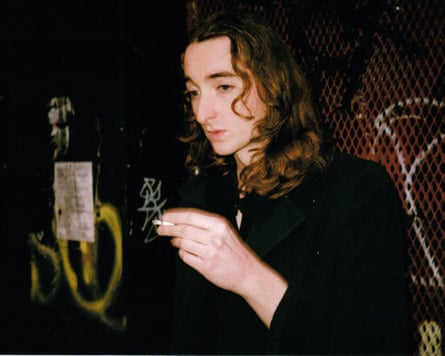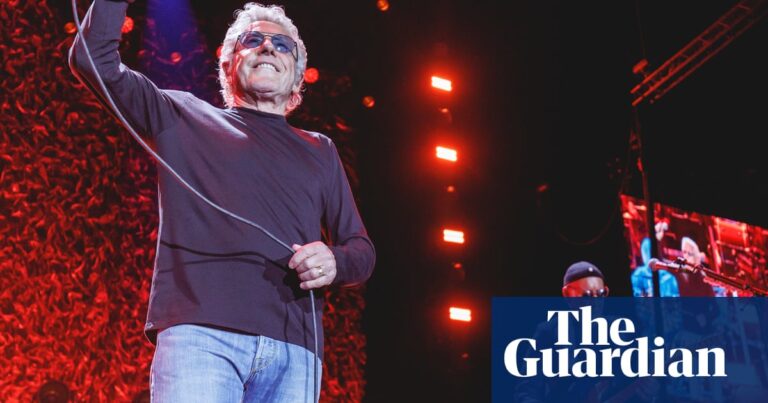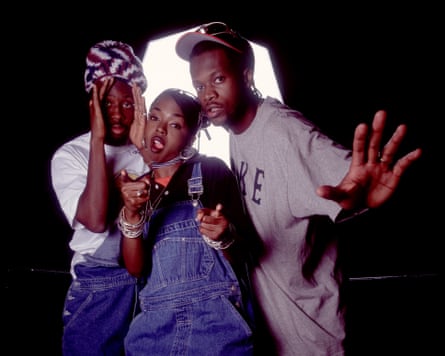Is Odessa Rae being eavesdropped on? The answer may depend how long the Kremlin holds a grudge. In 2022, the Canadian American producer helped make Navalny, the Oscar-winning documentary about Russian dissident Alexei Navalny. This February, after Vladimir Putin’s former rival died in prison, Rae actually felt attention increase. “I’ve definitely been followed this year,” she says. “I’ve left meals in Europe pretty certain the [Russian secret service] FSB have been at the next table.”
On one trip outside the US, her hotel room was broken into. Returning home to New York, she learned an attempt had been made to physically hack her laptop.
All of this gives an edge to a Zoom conversation. Rae, 42, is in Seattle when we speak, on a trip to see her mother. But these are hard times to find peace. Rae admits to finding “bittersweet” Thursday’s momentous prisoner swap between Russia and the west, including US journalist Evan Gershkovich.
For almost a year from spring 2023, she was part of a small team of activists working on a swap involving Navalny. Crucial pieces were put in place by her group, she says: persuading the German government to release Russian hitman Vadim Krasikov; alerting the Biden administration; establishing a back channel to Moscow. “By February, there was a deal on the table,” she says.
Instead, Navalny died at 47, in what was widely seen as a de facto assassination, approved by Putin. “I’m obviously happy for everyone released, but there is also sadness because the origin of this swap was the Navalny exchange. And the one person missing is Alexei.”
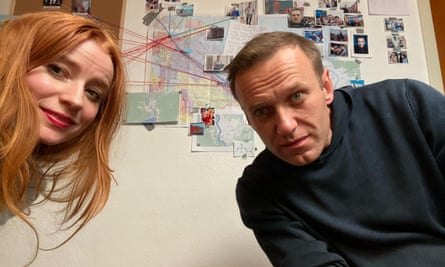
For now, the subject changes to Hollywoodgate, the new film she has produced. The director is Egyptian film-maker Ibrahim Nash’at, who from 2021 spent a year with the Taliban as they retook control of Afghanistan after the US occupation. Having convinced a senior Talib he would essentially make a promotional video, the project saw Nash’at disappear into the country, aware that a hint of his real purpose could cost him his life. “Ibrahim had a burner phone, but it was vital he wasn’t found communicating with me. So you just waved him off, and waited, and hoped he came back.”
Later, Rae helped Nash’at receive trauma therapy. The film at the end of it all is a stark portrait of tyranny triumphant, buoyed up by $7bn worth of abandoned US weapons. But Rae says Hollywoodgate is about 20 years of Afghan American war as much as the withdrawal. “Four presidencies oversaw that war: Bush, Obama, Trump and Biden. And we still haven’t had an honest conversation about it.”
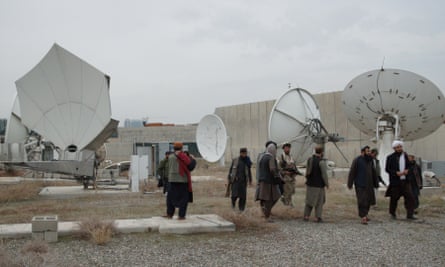
Other tasks also went beyond the basic deal-making remit of the producer. The film could not have been made without Afghan translator Adel Safi, still in Kabul when Nash’at finally fled. “I lost a lot of sleep over that,” Rae says. At a screening of Navalny in Brussels, she secured the help of EU officials. Safi duly received a German visa, before a Ukrainian contact of the producer ensured his safe extraction.
Inevitably, we circle back to Navalny. Rae and director Daniel Roher were also on his plane back to Russia in January 2021, where the dissident was arrested on sight. By the time the film won the best documentary Oscar in 2023, he had been jailed two years.
Then came the attempt to secure a prisoner swap, with Rae working alongside activists Christo Grozev and Maria Pevchikh. Today, she remembers Navalny constantly making her laugh. “He said to me before the flight, ‘Odessa, if I get shot at Moscow airport, how much more money will your film make?’” She smiles, then pauses. “His death felt like an incomplete mission.”
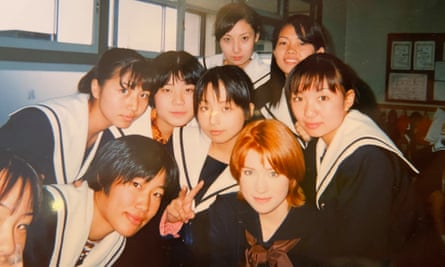
The skills of a film producer and career diplomat can overlap: a flair for problem-solving, a gift for making contacts. For Rae, life at one time clearly pointed to a future in foreign policy. The daughter of Canadian parents who met at art school, her early childhood was spent in the southern Indian state of Tamil Nadu. After her parents broke up, her mother set up home on a boat in Seattle; her father moved to Hong Kong, an academic who then went into banking. At 15, Rae struck out alone, moving as an exchange student to Japan, where she lived with a Buddhist priest and his family until university. That was in Toronto. She studied global politics.
“My childhood shaped my fascination with foreign policy,” she says. “You become a chameleon in these different cultures. But actually, the differences are superficial. And cheesy as it sounds, I wanted to build bridges.”
Film, she says, had never been the plan. But in Toronto, Rae was scouted in the street by a modelling agency. That led to a Japanese TV ad campaign for jeans brand Edwin: Rae speaking fluent Japanese to baffled co-star Brad Pitt in Los Angeles’s decrepit Ambassadors Hotel. The director was Alejandro González Iñárritu. “Brad wanted to surf down the hotel stairs. I don’t remember why.”
The campaign brought fame in Japan. Amid a rush of offers of acting work, she dropped out of university and returned to Asia. In 2004 she starred in Jenifa, a Japanese film based on her experience in the country as a teenager. Behind the scenes, she helped arrange the budget, and contributed to decision-making. She realised now what she wanted to be: a producer. But that vision collided with movie business realities. “Some older men on the production were very uncomfortable with this 21-year-old girl thinking she was a part of the team.” Jenifa left her at once disillusioned and eager for more. She quit Japan for LA: “Solely because it was where they made movies.”
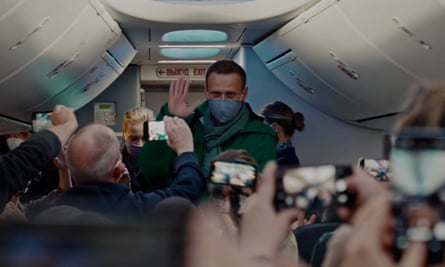
For the next decade, she became a jobbing Hollywood actor. There was a role opposite Elliot Page in the thriller Hard Candy, and steady work thereafter. But she was, she says, “incredibly depressed. I felt like I’d failed. I’d actually realised I wanted to produce, but now it was just auditions and trying to pay the bills. I was dying inside.”
The breakthrough came thanks to Asia. By the 2010s, her connections there helped set up film production company Ivanhoe. It would go on to make cultural phenomenon Crazy Rich Asians, a useful title to namecheck as Rae at last struck out on her own. But her movies had a different tone: documentaries fuelled by her continued fascination with politics. In 2021 she produced The Story Won’t Die, about Syrian refugee artists. Then came Navalny: a project so definitively indie, she put the initial budget on her credit card.
After Navalny, Rae also produced Karim Amer’s documentary Defiant, about Ukrainian efforts to repel Russian disinformation. Lately, she has spent more time in Ukraine, working on what will be a feature film. A recent visit began on the July day the Okhmatdyt children’s hospital was bombed in Kyiv. “Beautiful sunshine. Birds chirping. Then they said the train was delayed, and I saw the smoke.” But for all that her work has spotlit a brutal Russia, Rae draws a line between the Kremlin and the Russian public. “People there compartmentalise. But I have to hope there is a future where we communicate again.”
Rae remains close to Navalny’s widow Yulia Navalnaya, now the subject of a Russian arrest warrant. “Yulia is one of the strongest people I’ve ever met. And she will do what she feels she needs to do to keep Navalny’s mission alive.”
She insists she can’t say much about the new Ukraine film, or indeed a potential documentary on Israel and Gaza: “Yeah. Absolutely cannot talk about that.” She is more forthcoming about a coming portrait of New York-based Iranian dissident Masih Alinejad. “She’s like Navalny. A great character.” I say that Rae only seems to be missing a film about North Korea. “Oh, I have something in that realm too.” She smiles again. “Obviously, my plan is to end up on more hitlists.”
Source: theguardian.com









